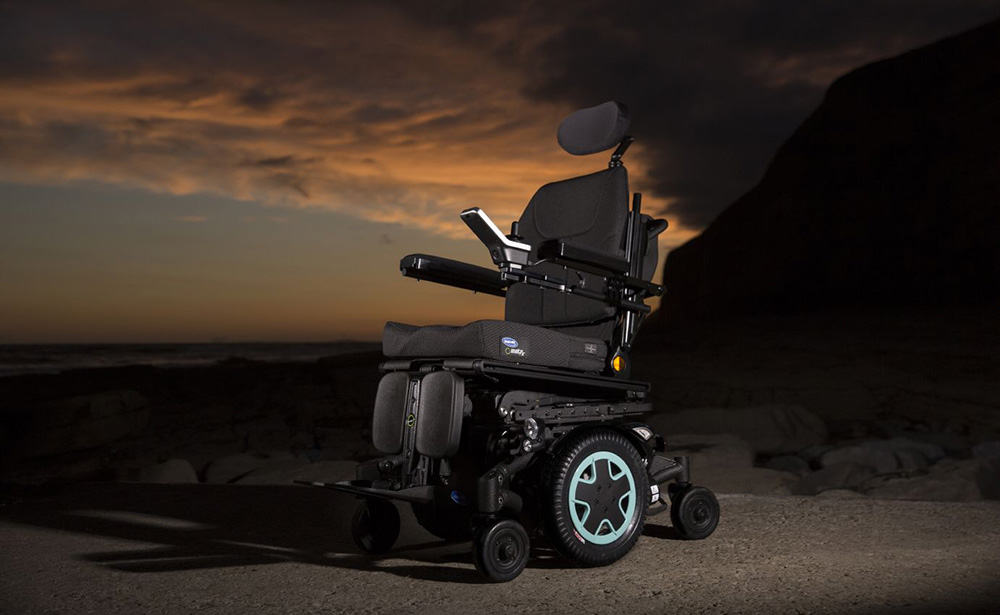Invacare enjoys strong Q1 but indicates that COVID-19 to hit mobility and seating sales
Building on the success of 2019, Invacare enjoys strong first quarter in 2020 however anticipates a fall in mobility and seating products in the second quarter as a result of COVID-19, putting “pressure on profitability.”
Disclosing its results for the first quarter of 2020, Invacare is among one of the first major mobility manufacturers to reveal its financial performance since the outbreak of the coronavirus. In its report, however, the multi-national manufacturer emphasises the results were largely ahead of the impact of COVID-19 on its business.
Released on the 6th May, the results reported for the quarter ended March 31, 2020, revealed that the global supplier’s organisational transformation continued to deliver improved profitability and free cash flow.
It comes on the back of a strong year for Invacare which saw it reduce its global operating loss by $7.9m (£6.10m) to $10.4m (£8.06m) in 2019.
In Q1 2020, Invacare’s net sales decreased by 2.2 per cent to $218.4m (£177.1m) compared to Q1 2019 but gross profit increased by 2.4 per cent from $61.5m in 2019 (£49.9m) to $63m (£51.1m) in 2020.
The manufacturer also saw operating income significantly improve compared to the previous year.
In Q1 2019, the company reported an operating loss of $4.5m (£3.7m), however, in Q1 2020, it returned to the black with an operating income of $9.4m (£7.6m).
Importantly, Invacare highlighted that the $9.4m includes its $9.6m (£7.8m) divestment of Dynamic Controls in early March – without the sale, Invacare would have made $0.2 operating loss, still a vast improvement on 2019.
The $4.3m operating income improvement (excluding its divestment) is attributable to reduced employment costs as a result of its transformation strategy, reduced R&D expenses, more profitable sales mix, as well as material and freight cost savings.
Matt Monaghan, Chairman, President and Chief Executive Officer of Invacare, commented: “We entered 2020 intending to build on our previous transformation progress and I am pleased to report good results in the quarter, demonstrated by strong financial performance across all business segments.”
In Europe, Invacare’s net sales fell by 3.1 per cent against Q1 2019 from $124.8 (£101.2m) to $121m (£98.1m), however, operating income improved by 18.5 per cent from $5.8m (£4.7m) to $6.9m (£5.6m).
According to the report, an increase in demand for respiratory and mobility and seating product sales more than offset by decreased sales of lifestyle products.
In North America, Q1 2020 saw slightly higher net sales, up by 0.8 per cent from 2019 to $87m (£70.5m) and a significant 53 per cent increase in operating income, slashing its loss to $2m (£1.6m) in 2020 against the $4.4m (£3.6m).
Growth in mobility and seating specifically helped to drive the improved North American results, with powerchairs accounting for 16 per cent of a 4 per cent growth in the product category, including new powered mobility products released across the pond.
COVID-19 set to impact mobility and seating sales in Q2
Outlining the effect of coronavirus in the near-term, Matthew Monaghan indicated that some areas of the business, such as its respiratory arm, had seen increased demand as healthcare systems around the world sought out devices to help combat the respiratory disease.
“Overall, the pandemic has impacted our business units in varying ways, creating opportunities for some business units and challenges for others,” he said.
“We must remain flexible as we navigate supply chain issues to meet the increased demand for products that help to fight the pandemic, while also reducing expenses to offset declines in other parts of our business.”
In particular, the international manufacturer detailed that demand globally has spiked from its respiratory products, beds, and therapeutic support surfaces – all vital in the fight against COVID-19.
Responding to the high demand, Invacare noted that it was taking steps to ramp up production “in a cost-effective manner by offsetting cost increases from pandemic-related supply chain disruption.”
Conversely, the company’s mobility and seating products – among the most profitable divisions in the company – began to experience a decline in quotes and orders as a result of limited access to clinicians and healthcare facilities, combined with various stay-at-home orders starting in mid-March.
Accounting for 43 per cent of the last 12 months net sales, Invacare predicts that demand will bounce back once “COVID-19 related priority care and public health policies are relaxed” but anticipates its second-quarter results “will be challenged by lower sales volumes, with pressure on profitability.”
Despite the pandemic, Invacare also confirmed it will continue to its transformation plans, including the previously announced plant consolidation in Germany and global IT modernisation initiative.
In addition, the company disclosed that it will continue to take steps to preserve liquidity, including accessing government support programs, delaying bonuses earned in 2019, reducing payroll costs including salary reductions for directors and senior executives, implementing furloughs, and reducing hours in various locations.



